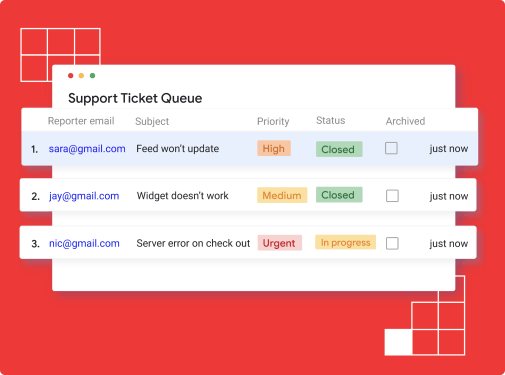Google Tables, a work-tracking tool and competitor to the popular spreadsheet-database hybrid Airtable, is shutting down. In an email sent to users, Google announced the app will no longer be supported after December 16, 2025. The company advised users to export or migrate their data to either Google Sheets or AppSheet, depending on their specific needs.
Launched in 2020, Google Tables focused on making project tracking more efficient through automation. It emerged from Google’s in-house app incubator, Area 120, which was devoted to developing experimental projects. Some of these projects later became part of Google’s core offerings across Cloud, Search, and Shopping.
Tables was an early success. In 2021, Google announced the service was moving from beta to become an official Google Cloud product. At that time, the company saw Tables as a potential solution for various use cases, including project management, IT operations, customer service tracking, CRM, recruiting, and product development.
The app was created by long-time Google employee Tim Gleason. He later moved on to become a tech lead manager for Notebook LM before announcing his planned retirement beginning in September 2024.
Area 120 underwent significant changes in 2022. Google canceled half of its projects and reduced the in-house R&D division to half its size. The remaining division was directed to focus solely on AI projects. The following year, Area 120 was wound down amid broader company layoffs. A small number of projects were moved into core Google product areas.
Despite these organizational shifts, Tables survived because it was part of the Google Workspace team under Google Cloud. Unfortunately, the service has now reached its own end-of-life date.
Google is advising Tables administrators to export their data directly to Google Sheets to continue managing workflows there. Alternatively, users can take advantage of a new migration tool to import their data into Google’s no-code platform, AppSheet. This second option preserves formatting like column types and relationships. The workflow can then be managed with AppSheet’s automations, fine-grained permissions, and Workspace integrations.
The company announced the coming closure on the Tables website earlier this month and directed users to a FAQ page. This page noted that the team behind Tables had created a new data experience to power automated apps and workflows directly inside AppSheet. This alternative, launched in June 2023, allows users to build data models for custom apps and workflows within the AppSheet platform.

